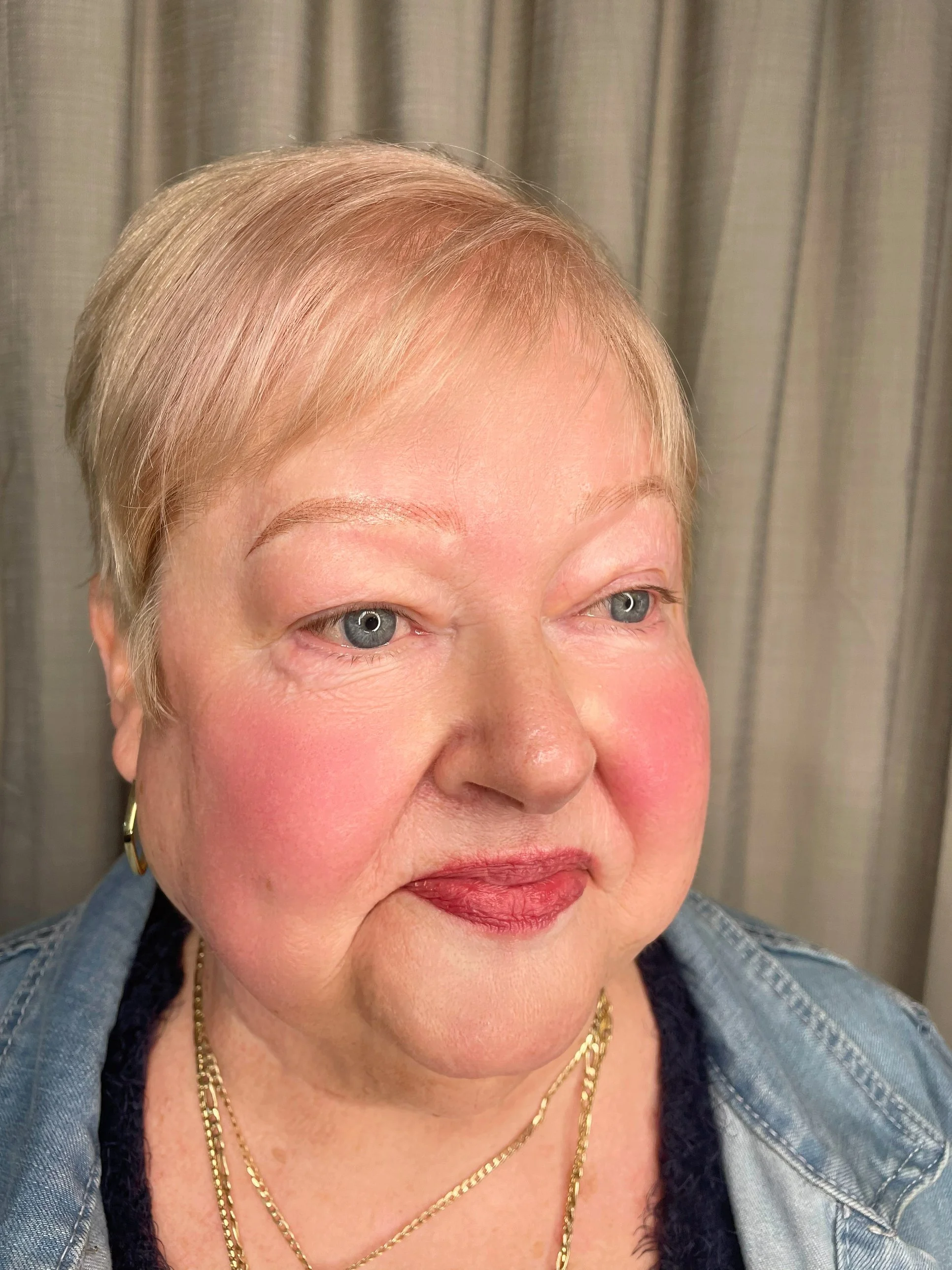How Does Menopause Affect Getting a Brow Tattoo?
As we age, our skin changes — and so does the way it responds to treatments like cosmetic tattooing. If you're going through menopause or post-menopause and thinking about getting your brows tattooed, it's natural to wonder whether your skin is still suitable. The short answer is: yes, it is — but it does need the right approach.
Here’s what you need to know.
How does menopause affect the skin for tattooing?
The skin changes a lot during menopause. Oestrogen levels drop, which makes the skin drier and more sensitive. Collagen production slows down, so the skin loses elasticity and strength. These things can affect how the pigment is held in the skin and how it heals. The skin may also be more reactive and bruise more easily than it once did.
Does healing take longer after menopause?
Yes. Skin can take a little longer to settle after tattooing. It might stay red or tender for a few extra days. You may also see more peeling or flaking. The pigment might not hold as strongly after the first session, and that’s completely normal for skin going through menopause.
What I mean by a “layered approach” is this: rather than going too bold too quickly, I build your brows slowly over a couple of sessions. Your first session is where we create the base. Then, at your 6-week touch-up ($110), we refine and adjust. If your skin still needs a bit more after that, I offer a second touch-up at the same $110 rate (even though it would normally be $350).
Why? Because I want you to get the best result for your skin, without feeling like you're being charged extra just because your skin is doing what it naturally does during this stage of life.
Do you change your technique for mature skin?
Always. Mature skin needs lighter pressure and more precision. I use finer tools that allow me to work gently and place pigment with more control. This helps avoid unnecessary trauma to the skin and gives a softer, more natural result. I also adjust the pigment colour to suit your skin’s undertone, for example, cooler tones tend to heal better on rosier or more reactive skin. It’s not about pushing harder. It’s about working smarter, with your skin in mind.
What concerns do women have when they’re in or post-menopause?
Most of them are worried their skin won’t be suitable — they say things like “my skin’s too thin” or “I think I’ve left it too late.” Some are unsure what shape would suit them now, especially if their brows have faded or changed over time. Many have been sitting on the idea for years but feel nervous about the outcome.
What do clients think will be a problem, but actually isn’t?
Age. Or skin texture. So many women think they’re not ideal candidates because of how their skin looks or feels. But in reality, mature skin often responds beautifully to the right approach. The problem isn’t your skin — it’s whether the person working on it understands it.
What kind of result can someone expect after menopause?
Natural definition. A shape that gently lifts the face and fills in what’s been lost. You might’ve heard that mature skin fades pigment faster — but in my experience, it’s often the opposite. As we age, our skin renews more slowly, which actually helps the pigment stay in place longer. Most of my clients come back for touch-ups around the two-year mark, not because things have faded quickly, but because they want to keep the shape and definition fresh. It’s not your age that determines how long it lasts — it’s how well the work is done.
What if someone’s unsure if they’re too old or their skin is too fragile?
You’re not too old. And your skin isn’t too fragile, it just needs the right approach. If your health is good and your skin isn’t actively compromised, there’s no reason you can’t have brows that make you feel confident again. It’s not about fighting age, it’s about working with it.
💬 Want to talk it through?
If you're considering having your brows tattooed and want someone who specialises in working with mature skin and menopause-related changes, you're in the right place. I offer free 15-minute phone consultations so we can talk through your concerns and see if it’s a good fit — no pressure.


